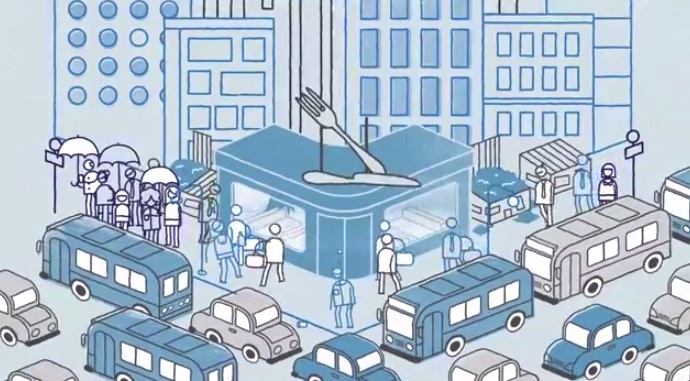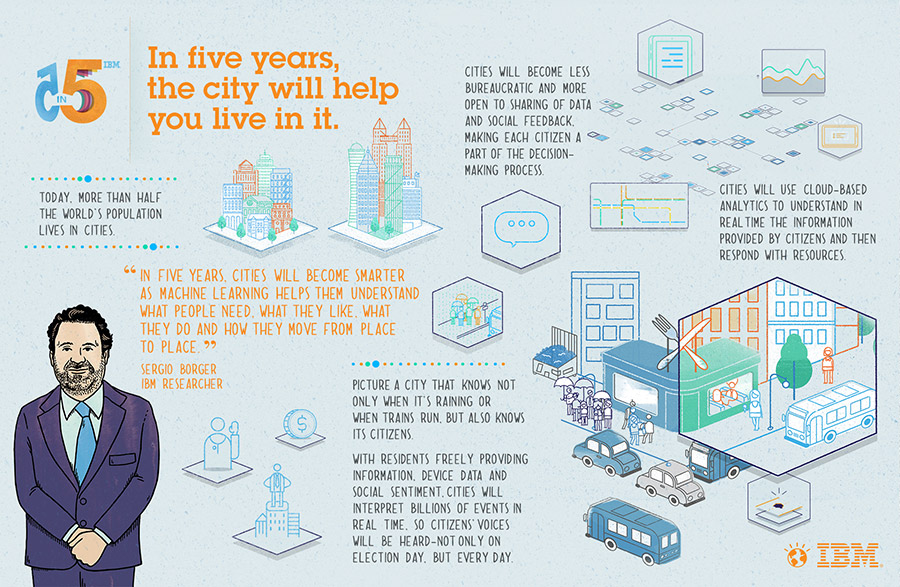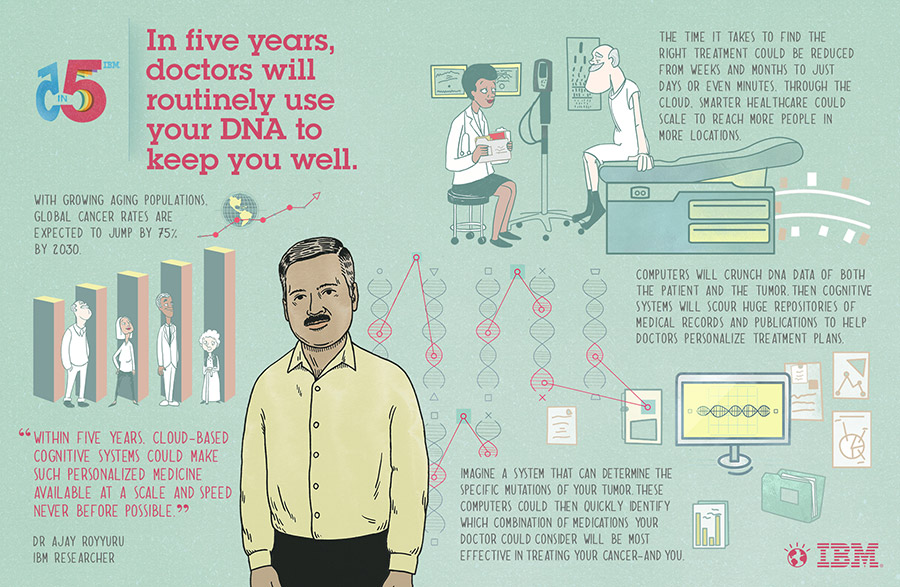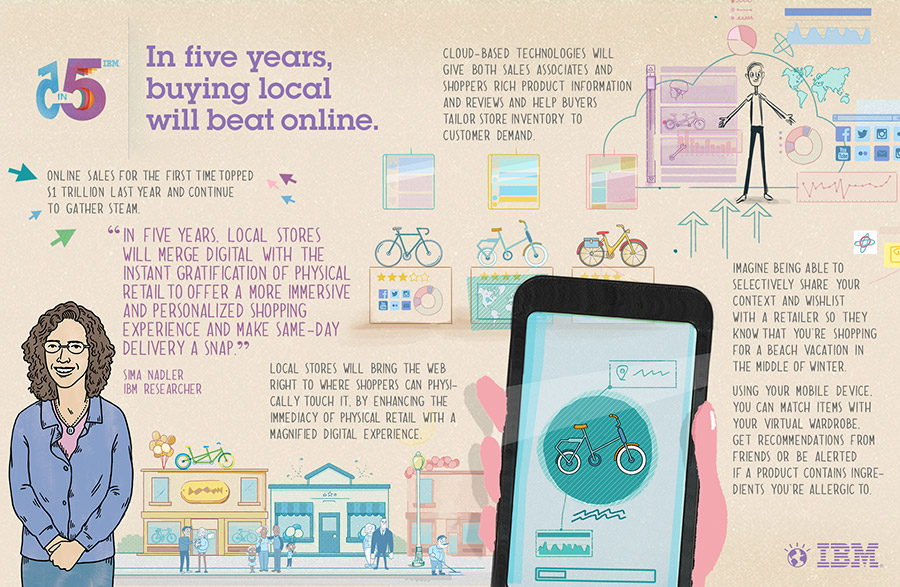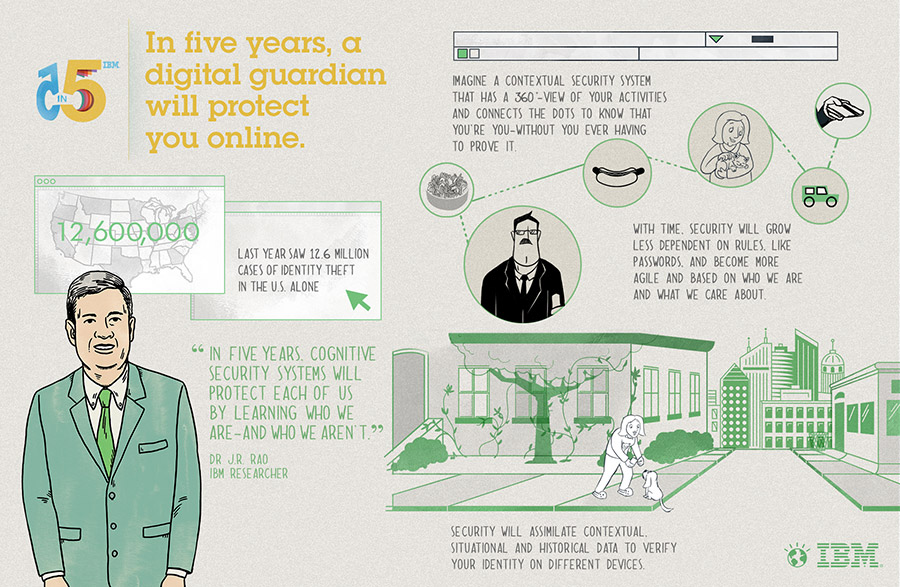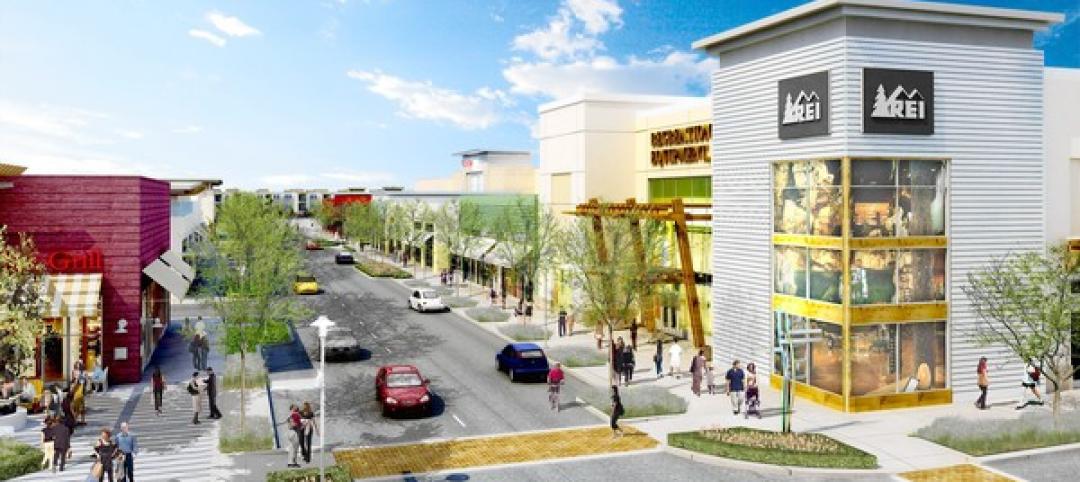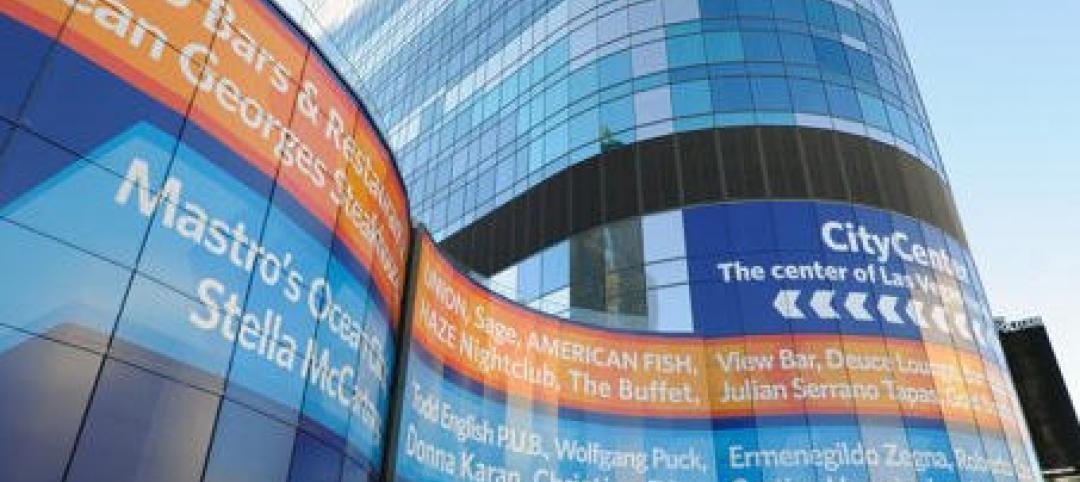Yes, it's the time of the year when everyone and their cousin reveals their bold predictions and big trends for the coming year. Tech giant IBM just released one of the better forward-looking reports: "The 5 in 5: Innovations That Will Change Our Lives in the Next Five Years," complete with videos and colorful infographics (see below).
As you would expect from IBM, all five innovation predictions are driven by emerging technologies, such as cloud computing, big data analytics, and learning technologies. At least three of their predictions have a direct relationship with the built environment, and all five are related to construction in some way.
Here are IBM's 5 in 5 innovation predictions (descriptions and graphics courtesy IBM):
1. The Classroom Will Learn You
The classroom of the future will learn about each individual student over the course of their education, helping them master the skills that match their goals.The rapid digitization of educational institutions will allow unprecedented instrumentation of the learning process. Cognitive computing, or learning technologies, will help us calculate everything we can about how each student learns and thrives, then create flexibility in the system to continually adapt and fine-tune what we deliver to that student and how this supports teachers and employers. More on this trend.
2. The City Will Help You Live In It
For citizens, smart phones enabled by cognitive systems will provide a digital key to the city. People can have fingertip access to information about everything that’s happening in the city, whether an experience is right for them, and how best to get there. Because these learning systems have interacted with citizens continuously, they know what they like—and can present them with options they might not find easily. More on this trend.
3. Doctors Will Routinely Use Your DNA To Keep You Well
Today, full DNA testing to help make treatment decisions is still rare. But cognitive systems and cloud computing may make this form of treatment mainstream. It could be done faster, more affordably and much more frequently. In addition to DNA testing for cancers, we may even see DNA-specific personalized treatment options for conditions such as stroke and heart disease. More on this trend.
4. Buying Local Will Beat Online
The technology trends will move us back to brick and mortar—but with a difference. In the future, retailers will layer increasing levels of engagement and personalization on top of the shopping experience, ultimately merging the instant gratification of physical shopping with the richness of online shopping and making same-day delivery a snap. More on this trend.
5. A Digital Guardian Will Protect You Online
Security is evolving from being based on rules, like passwords, to being automatic and made stronger through us just being us.This guardian will have your back, trained to focus on the people and items it is entrusted with based on a 360 degree of an individual’s data, devices and applications. It will make inferences about what’s normal or reasonable activity and what’s not, ready to spot deviations that could be precursors to an attack and a stolen identity. More on this trend.
Related Stories
| Mar 19, 2012
Smith Carter joins forces with Genivar
Smith Carter has a workforce of some 190 employees and designs complex buildings in challenging environments.
| Mar 19, 2012
HKS Selected for Baylor Medical Center at Waxahachie
Baylor Medical Center at Waxahachiewill incorporate advanced technology including telemedicine, digital imaging, remote patient monitoring, electronic medical records and computer patient records.
| Mar 19, 2012
Mixed-use project redefines Midtown District in Plantation, Fla.
Stiles Construction is building the residential complex, which is one of Broward County’s first multifamily rental communities designed to achieve LEED certification from the USGBC.
| Mar 16, 2012
Temporary fix to CityCenter's Harmon would cost $2 million, contractor says
By contrast, CityCenter half-owner and developer MGM Resorts International determined last year that the Harmon would collapse in a strong quake and can't be fixed in an economical way. It favors implosion at a cost of $30 million.
| Mar 16, 2012
Work on Oxnard, Calif. shopping center resumes after a three-year hiatus
Stalled since 2009, developers of the Collection at RiverPark decided to restart construction on the outdoor mall.
| Mar 16, 2012
Stego embarks on HPD Pilot Program
Vapor barrier manufacturer strives to provide better green choices to designers and builders.
| Mar 16, 2012
Marvin Windows and Doors accepting entries for fourth-annual myMarvin Architect’s Challenge
Architects in U.S. and abroad offered the chance to showcase their very best work.
| Mar 14, 2012
Hearing to decide fate of unfinished Harmon in Las Vegas under way
The testimony began with CityCenter consulting engineer Chukwuma Ekwueme methodically showing photo after photo of parts of the Harmon, where he and his team had chipped away the concrete pillars and beams to examine the steel reinforcing bars inside.
| Mar 14, 2012
Firestone names 2012 Master Contractor Award Winners
Annual award acknowledges industry’s top roofing professionals.
| Mar 14, 2012
Plans for San Francisco's tallest building revamped
The glassy white high-rise would be 60 stories and 1,070 feet tall with an entrance at First and Mission streets.


